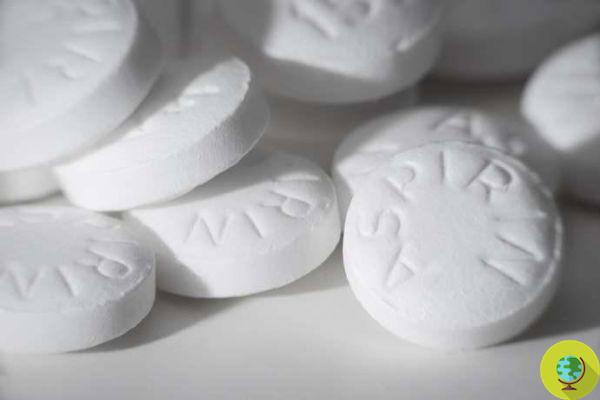
Aspirin is often recommended for those at increased risk of heart disease or stroke, but are the benefits really greater than the risks? According to the American College of Cardiology's new cardiovascular disease prevention guidelines, this drug shouldn't be recommended so lightly.
Don't store avocado like this: it's dangerous
THEaspirin it is often recommended to who is most at risk of heart disease or stroke, but are the benefits really greater than the risks? According to the American College of Cardiology's new cardiovascular disease prevention guidelines, this drug shouldn't be recommended so lightly.
The guidelines we refer to are those presented jointly by the American College of Cardiology and the American Heart Associated which have seen their publication in the Journal of the American College of Cardiology. These seem to contradict decades of medical practice by explicitly recommending NOT to use low-dose aspirin (75-100 mg) or cardioaspirin or aspirinette as a preventive health strategy against stroke or heart attack.
How do you read:
"Aspirin should be used infrequently in the routine primary prevention of ASCVD (risk of atherosclerotic cardiovascular disease) due to the lack of obvious benefits"
In essence, the new guidelines suggest that most adults should not take low-dose aspirin daily to prevent a first heart attack or stroke.
Based on the ASPREE, ARRIVE and ASCEND studies, the ACC / AHA guidelines conclude that the risk of aspirin side effects, particularly bleeding, outweighs the potential benefit. The risks increase among other things with age.
However, the warning does not apply to people with established cardiovascular disease, where the benefits of daily aspirin were found to outweigh the risks.
But what is aspirin?
The chemical acetyl salicylic acid, commonly known as aspirin, is a synthetic form of salicylic acid, compound that is formed when salicin, a bitter substance naturally present in plants such as white willow bark, is broken down inside the human body.
While salicylic acid occurs naturally in plants such as salicylates, acetyl-salicylic acid does not exist in nature and is only produced through industrial synthesis. Furthermore, the chemical modification of natural salicylic acid with an acetyl group determines the acetylation of hemoglobin, that is to say essentially the natural structural function of our red blood cells and the subsequent hemodynamics are chemically modified.
This could be why aspirin has been linked to such a wide range of adverse health effects including:
- Gastric ulcer
- Hearing loss / tinnitus
- Brain bleeding
- Reye's syndrome
- Crohn's disease
- Helicobacter Pylori infection
As usual what to do must be assessed on a case-by-case basis. Therefore, the decision to start taking aspirin regularly should come from a detailed discussion with your doctor as part of an overall strategy to reduce cardiovascular risk that includes healthy eating and physical activity.
Alternatively, we told you about some plants with a strong anti-inflammatory power that could be a valid alternative, always to be evaluated first with an expert based on your health conditions.
You may also be interested in:
- The whole truth about aspirin and heart attacks: here's why it doesn't work
- Cardioaspirin: all side effects and contraindications
- Aspirin: Reduces the risk of colon cancer, but only if you have a gene


























